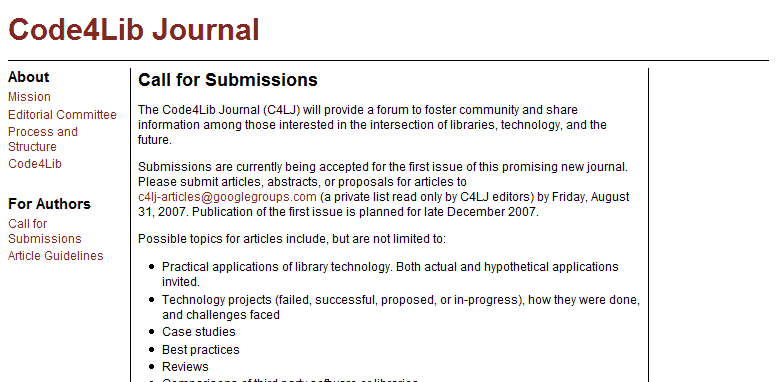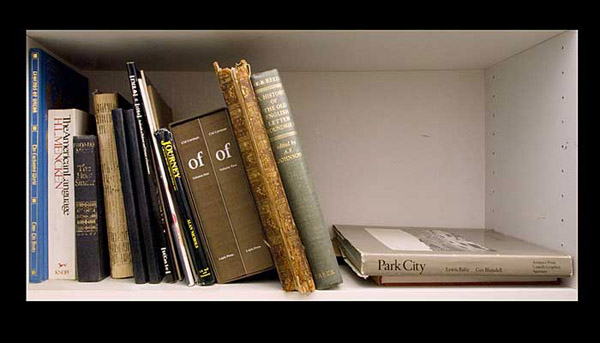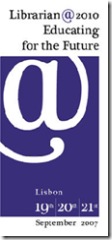Andrew Odlyzko em “Silicon dreams and silicon bricks: the continuing evolution of libraries” (1997) começa por trazer à atenção do leitor uma série de tabalhos recentes para a época (1997) sobre o eminente ocaso do LIVRO como veiculo de informação, eclipsado pela biblioteca digital.
Vê-se que o titulo que Andrew dá ao seu artigo não destoa dos artigos que estavam a ser escritos na época…. Aliás pode mesmo ver-se que os fundamentos físicos das bibliotecas de sentem ameaçados:
Communication and computing technologies are leading to “a mixture of excitement, nervous anxiety, and paranoia” among librarians (Young, 1996, p. 103). It is widely expected that substantial changes are imminent. The Benton Foundation report, “Buildings, Books, and Bytes: Libraries and Communities in the Digital Age” (Benson Foundation, 1996), is a valuable snapshot of library leaders’ current thinking about their role and also of the public’s views of libraries. It helps to discuss this report along with two other recent publications about libraries, the special issue of Daedalus entitled “Books, Bricks, and Bytes” (Daedalus, 1996) and the book “Future Libraries: Dreams, Madness, & Reality” by Walt Crawford and Michael Gorman ( 1995)
Enfases meus.
E depois avança com duas afirmações de quem defende que o livro é um formato eterno:
De Peter Lyman (1996) cita:
[t]he computer will not replace the book any more than the book has replaced speech”
Lyman, P. (1996). What is a digital library? Technology, intellectual property, and the public interest. Daedalus, 125(4), 1-33
De James Billington (1996) cita:
“The book, that most user-friendly communications medium, has a long life ahead of it. I do not believe that our great-grandchildren will be reading the plays of Shakespeare or `Moby Dick’ on computer screens.” […] “Free democratic societies were born out of the book culture and may not survive without it”
Billington, J. H. (1996). Libraries, the Library of Congress, and the Information Age. Daedalus, 125(4), 35-54
Mas depois lembra que Filippo di Strata (fins do séc XV ) afirmava
“the world has got along perfectly well for six thousand years without printing, and has no need to change now.”
apud Hibbitts, B. (1996). Yesterday once more: Skeptics, scribes, and the demise of law reviews. 30 Akron Law Review, 267 (special issue) por sua vez apud “[I]ntellectuals were thrown into complete disarray by the arrival of a medium they did not understand . . . .” Martin Lowry, The World of Aldus Manutius: Business and Scholarship in Renaissance Venice 35 (1979).
Para a balança não desequilibrar o autor chama também Johannes Trithemius, que num tratado intitulado “De Laude Scriptorum” declarou:
“Printed books will never be the equivalent of handwritten codices….The simple reason is that copying by hand involves more diligence and industry”
Mas há mais: já em Fedro, lembra Andrew, Platão põe na boca de Sócrates a seguinte história:
This discovery of yours will create forgetfulness in the minds of those who learn to use it; they will not exercise their memories, but, trusting in external, foreign marks, they will not bring things to remembrance from within themselves. You have discovered a remedy not for memory, but for reminding. You offer your students the appearance of wisdom, not true wisdom. They will be hearers of many things and will have learned nothing; they will appear to be omniscient and will generally know nothing; they will be tiresome company, having the show of wisdom without the reality.
E agora a minha pedrinha na engrenagem:
Também em “Digital Libraries and the Problem of Purpose” (2000) Dlib 6(1) , David M. Levy do Xerox Palo Alto Reseach Center faz o seguinte reparo:
[Note 3] Abbott [1] observes that as microfilm was introduced (it was developed in 1928), “It became common to assert that libraries would soon be replaced by personal collections of microforms.”
[1] Abbott, A., The System of Professions: An Essay on the Division of Expert Labor. 1988, Chicago: University of Chicago Press.
Um dia que seja professor de BDEIE o trabalho vai ser descobrir pelo menos 10 citações únicas, por aluno, que antevêem o fim do LIVRO e se possivel que não se tenham verificado. Isso e quem não souber XML à quinta hora volta para o 1º ano. Quem souber XML e XLT tem emprego garantido nos próximos 9 anos… para não falar que percebem patavina de OAI sem XML..





